Authors
Writer and editor
This site is maintained by Dr Andreas Matthias.
Guest Authors
Daily Philosophy is lucky and honoured to host a number of fascinating articles by great philosophers and writers. If you are interested in joining them, you can find more details on the submissions page.
Here is a list of contributing authors (in alphabetical order). Their short biographies, with links where you can look up their other work, follow below:
- Eva Anagnostou-Laoutides, Associate Professor at the Department of Ancient History, Macquarie University, Australia.
- Lorenzo Buscicchi, PhD Candidate at the University of Waikato, New Zealand.
- David Cockayne, Retired gasfitter; independent student of Chinese philosophy.
- David E. Cooper, Professor Emeritus of Philosophy at Durham University, UK.
- Emanuele Costa, Assistant Professor of Philosophy at Vanderbilt University.
- Catherine Greene, Research Associate at the Centre for Philosophy of Natural and Social Science at the London School of Economics, UK.
- Michael Hauskeller, Professor of Philosophy and Head of the Philosophy Department at the University of Liverpool, UK.
- Sofia Jeppsson, Associate Professor of Philosophy at Umeå University, Sweden.
- Ian James Kidd, Lecturer in philosophy at the University of Nottingham.
- Stephen Leach, Honorary Senior Fellow at Keele University, UK.
- Nick Munn, Senior Lecturer in Philosophy at the University of Waikato, New Zealand.
- Brentyn J. Ramm Humboldt postdoctoral fellow in the Department of Psychology and Psychotherapy at Witten/Herdecke University, Germany.
- John Shand, Visiting Fellow in Philosophy at the Open University, UK.
- James Tartaglia, Professor of Metaphysical Philosophy at Keele University, UK.
- Ezechiel Thibaud, Visiting assistant lecturer in philosophy at Lingnan University, Hong Kong.
- Dan Weijers, Senior Lecturer in Philosophy at the University of Waikato, New Zealand.
- Lucy Weir, Independent researcher, writer and facilitator.
- Roman V. Yampolskiy, Tenured Associate Professor in the department of Computer Science and Engineering, University of Louisville.
All guest posts can be found on the Guest Posts page.
Many thanks to all for your support!
Interview partners
Daily Philosophy has been honoured to interview some of the most interesting, knowledgeable and original minds in the world of philosophy. Here are our past interview partners:
- Wael B. Hallaq, Avalon Foundation Professor in the Humanities at Columbia University, leading scholar of Islamic law and Islamic intellectual history.
- Luis de Miranda, Researcher at the Center for Medical Humanities of Uppsala University, author and founder of the Philosophical Health movement.
- Luca M. Possati, Researcher at the University of Porto, Portugal, specialising on the relationship between neuropsychanalysis, affective neurosciences, and artificial intelligence.
- Robert Rodriguez, life-long researcher and chronicler of hermit life and the history of hermits, author of The Book of Hermits: A History of Hermits from Antiquity to the Present (Hermitary Press, 2021), founder and editor of the website Hermitary (hermitary.com).
- Andrei Simionescu-Panait, Philosophy Lecturer at the Polytechnic University in Bucharest, teaching philosophy of technology and history of philosophy.
- Roman V. Yampolskiy, Tenured Associate Professor in the department of Computer Science and Engineering, University of Louisville.
All interviews can be found on the Interviews page.
Again, many thanks to all for your kind support of Daily Philosophy’s mission!
◊ ◊ ◊
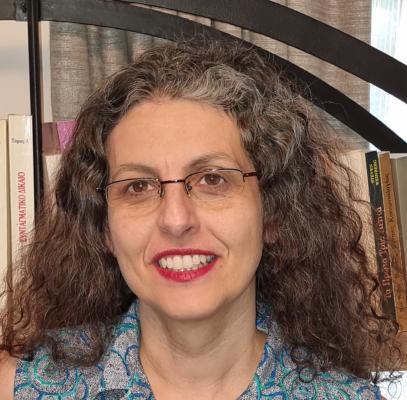
Eva Anagnostou-Laoutides
- https://researchers.mq.edu.au/en/persons/eva-anagnostou-laoutides-2
- https://mq.academia.edu/EvaAnagnostouLaoutides
Eva Anagnostou-Laoutides is Associate Professor at the Department of Ancient History, Macquarie University and Australian Research Council Future Fellow (2017-2021). Her research interests focus on the use of mythic and religious traditions in political agendas of the Hellenistic and Augustan periods; also, the reception of Greek philosophy in early Christianity. She is currently finishing a book on The History of Inebriation from Plato to the Latin Middle Ages and runs an Australian Research Council Discovery Project on Crises of Leadership in the Eastern Roman Empire, 250-1000 CE.
- Eva Anagnostou-Laoutides: Plato and the Ancient Politics of Wine (2). Part B. The Test of the Wine
- Eva Anagnostou-Laoutides: Plato and the Ancient Politics of Wine. Part A. The Philosopher’s Drunken Vision
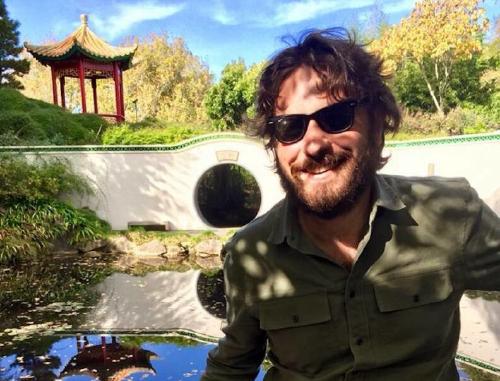
Lorenzo Buscicchi
Lorenzo Buscicchi is a PhD Candidate at the University of Waikato. His thesis, which employs the methods of affective science, is on the nature and value of pleasure. Lorenzo is the lead author of ‘The Paradox of Happiness: The more you chase it the more elusive it becomes’ in The Conversation Yearbook 2019: 50 Standout Articles from Australia’s Top Thinkers. He was previously the scientific director of the Global Happiness Organization.
- Dan Weijers, Nick Munn, Lorenzo Buscicchi: Happy Endings. Does size or shape matter most?
- Nick Munn, Lorenzo Buscicchi, Dan Weijers: Selling Happiness, One Chump at a Time.
- Nick Munn, Lorenzo Buscicchi, Dan Weijers: The Utility Monster is... other people!.
- Lorenzo Buscicchi, Dan Weijers, Nick Munn: Enlightened Self-Interest. Friends with benefits
- Lorenzo Buscicchi, Dan Weijers, Nick Munn: Psychological Hedonism. You Know You Want It
- Dan Weijers, Nick Munn, Lorenzo Buscicchi: Simulating Pleasure. If it feels good, does it matter whether it’s real?
- Dan Weijers, Nick Munn, Lorenzo Buscicchi: Is Pleasure Good? Don’t forget your safe word
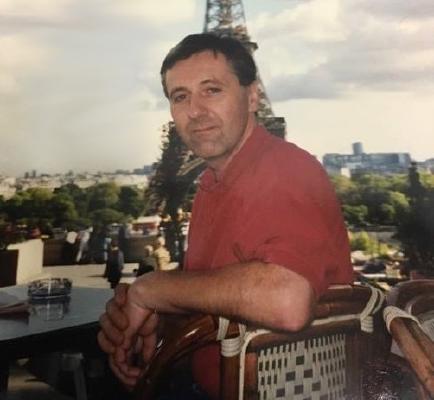
David Cockayne
David Cockayne comes from the formerly industrial West Midlands of England. He left school at 16 and became a gas fitter, subsequently declining into technical writing and then English teaching. Somewhere along the line he acquired qualifications in Computer Science and Linguistics.
His interest in Chinese philosophy derives from a youthful dalliance with Maoism during the Cultural Revolution and, in more recent times, two years’ confusion while teaching in Beijing. He is presently attempting to write an introduction to what Confucianism is and is not, focusing especially on what the ancient texts themselves actually say.
- David Cockayne: Confucianism and Just War.
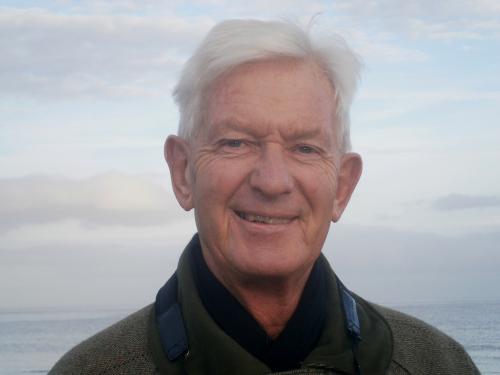
David E. Cooper
David E. Cooper is Professor Emeritus of Philosophy at Durham University, UK. He has been a visiting professor in several countries, including the USA, Canada, Malta, Germany and Sri Lanka. He has been the Chair or President of a number of academic societies, including The Aristotelian Society and The Nietzsche Society of Great Britain. His many books include World Philosophies: An Historical Introduction, The Measure of Things: Humanism, Humility and Mystery, A Philosophy of Gardens, and Animals and Misanthropy. He is also the author of three novels set in Sri Lanka.
- David E. Cooper: Jeremy Bentham on Animal Ethics. Philosophy in Quotes
- David E. Cooper: Nanavira Thera. The Hermit of Bundala
- David E. Cooper: Huts, Homelessness and Heimat. Chōmei and Heidegger
- David E. Cooper: The Rhetoric of Refuge. On the wish to retreat from the world
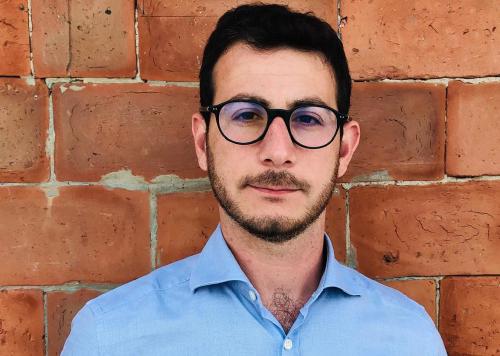
Emanuele Costa
Emanuele Costa is Assistant Professor of Philosophy at Vanderbilt University.
His research is primarily focused on Early Modern Philosophy and Metaphysics, but he also takes a keen interest in showing how the concepts and ideas developed in a different era shape the ways we understand our current world. He is currently completing a manuscript on Baruch Spinoza’s concept of individuality and relationality, and he has an active research project on Anne Conway’s philosophy of transcendence.
More information on the author’s homepage
- Emanuele Costa: Inventing the New World. Can AIs have intellectual property?
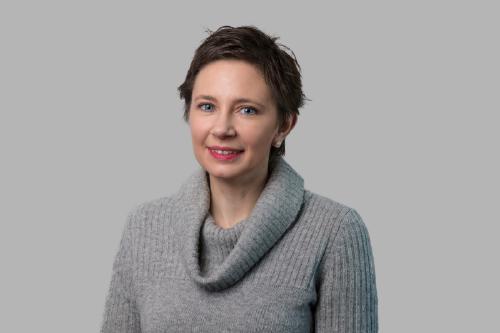
Catherine Greene
Catherine Greene is a Research Associate at the Centre for Philosophy of Natural and Social Science at the London School of Economics. Her research interests are the philosophy of finance and social science. Before studying for a PhD she had a career in finance and still consults an ethics and investment strategy. More information is available at www.catherinegreene.co.uk
- Catherine Greene: I’m depressed and it’s all your fault!. Separating depression from sadness
- Catherine Greene: If only I hadn’t done that.... Why counterfactuals are misleading
- Catherine Greene: More Aristotle than Galileo? Artificial Intelligence and scientific discovery
- Catherine Greene: Asimov’s Psychohistory. The illusive quest to predict the future
- Catherine Greene: What to Do When People Talk #$!!~#. The importance of meaningful disagreement
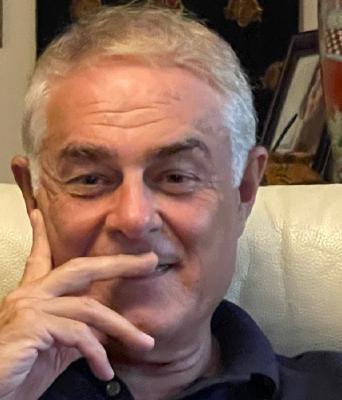
Wael B. Hallaq
Wael B. Hallaq (وائل حلاق) is a scholar of Islamic law and Islamic intellectual history and the Avalon Foundation Professor in the Humanities at Columbia University. He is considered a leading scholar in the field of Islamic legal studies.
Professor Hallaq has published over 80 major scholarly books and articles on a variety of topics including philosophy, political and legal theory, and the intellectual history of Orientalism and the Islam. Some of his recent works include: Restating Orientalism: A Critique of Modern Knowledge (2018); Reforming Modernity: Ethics and the New Human in the Philosophy of Abdurrahman Taha (2019); Authority, Continuity, and Change in Islamic Law (2001); The Origins and Evolution of Islamic Law (2005); Shari`a: Theory, Practice, Transformations (2009); and An Introduction to Islamic Law (2009).
His works have been widely debated worldwide and translated into a dozen languages. Impossible State (2013) won Columbia’s distinguished Book Award. In 2007, he won the Islamic Republic of Iran’s best book prize for his Origins and Evolution, and in 2020, the Nautilus Book Award for Reforming Modernity. In 2021, he was awarded the TÜBA Prize of the Turkish Academy of Science for innovative and path-breaking scholarship in the Humanities and Social Sciences.
- Andreas Matthias: Wael B. Hallaq on Islamic Law and Human Rights. Philosopher interviews
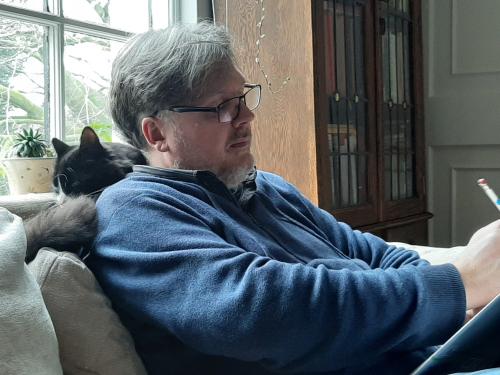
Michael Hauskeller
Michael Hauskeller is Professor of Philosophy and Head of the Philosophy Department at the University of Liverpool, UK. He specializes in moral and existential philosophy, but has also done work in various other areas, most notably phenomenology (the theory of atmospheres), the philosophy of art and beauty, and the philosophy of human enhancement.
His publications include Biotechnology and the Integrity of Life (Routledge 2007), Better Humans? Understanding the Enhancement Project (Routledge 2013), Sex and the Posthuman Condition (Palgrave Macmillan 2014), The Palgrave Handbook of Posthumanism in Film and Television (ed. with T. Philbeck and C. Carbonell, Palgrave 2015), Mythologies of Transhumanism (Palgrave Macmillan 2016), Moral Enhancement. Critical Perspectives (ed. with L. Coyne, Cambridge University Press 2018), and The Meaning of Life and Death (Bloomsbury 2019).
- Michael Hauskeller: Nothing Matters. Or Does It?
- Michael Hauskeller: Mother Knows Best. A short story
- Michael Hauskeller: The New Companion. A short story
- Michael Hauskeller: Happy in a Concentration Camp? It's possible, says Viktor E. Frankl
- Michael Hauskeller: The Real Happiness Machine. Ray Bradbury on living and dying well
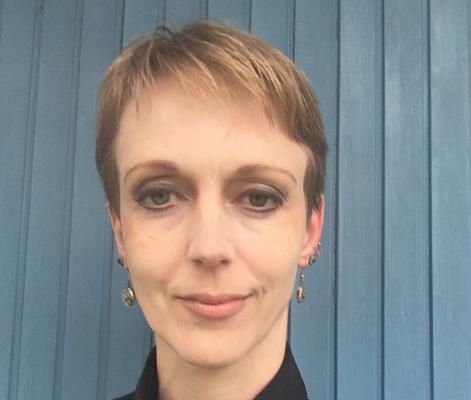
Sofia Jeppsson
Sofia Jeppsson is an associate professor of philosophy at Umeå University, Sweden. She has published articles about free will and moral responsibility as well as more applied ethics papers on topics such as criminal justice and animal ethics. She currently focuses her research efforts on the philosophy of psychiatry and madness.
- Sofia Jeppsson: Retributivism and Uncertainty. Why do we punish criminals?
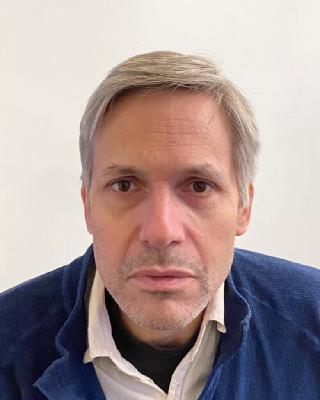
Stephen Leach
Stephen Leach is an Honorary Senior Fellow at Keele University, UK. He writes on themes in philosophy, archaeology, art history and human evolution.
Academia.edu page: Stephen Leach
- Stephen Leach: Philosophy and Nuclear Weapons.
- Stephen Leach: In Praise of Pyrrhonian Scepticism.
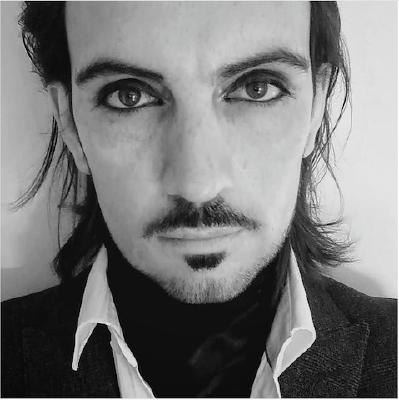
Ian James Kidd
Ian James Kidd is a lecturer in philosophy at the University of Nottingham. He previously worked at the universities of Durham and Leeds, teaching philosophy of religion, philosophy of science, and Indian philosophy. His current research interests include misanthropy, the philosophical significance of illness, and various themes in south and east Asian philosophy. His website is www.ianjameskidd.weebly.com.
- Ian James Kidd: Shénnóng and the Agriculturalist School.
- Ian James Kidd: Gardens of Refuge.
- Ian James Kidd: Going Slow.
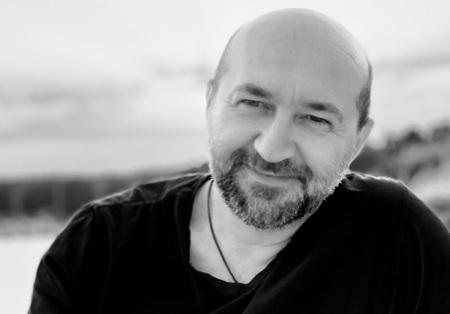
Luis de Miranda
Luis de Miranda lives in Sweden and is a philosophical practitioner, author of essays such as Being & Neonness (MIT Press), Ensemblance (Edinburgh University Press), and novels such as Who Killed the Poet? and Paridaiza (Snuggly Books). Some of his books have been published in various languages, such as English, French, Chinese, Arabic, Swedish, etc.
He works currently as a researcher at the Center for Medical Humanities of Uppsala University, and is the founder of The Philosophical Parlour, through which he offers online philosophical counseling sessions to individuals around the world. He is currently working on the contemporary revival of philosophical health and a related theory of crealectic intelligence and practice, based on a process philosophy of creativity.
- Andreas Matthias: Luis de Miranda on Esprit de Corps. Philosopher interviews
- Andreas Matthias: Luis de Miranda on Philosophical Health. Philosopher interviews
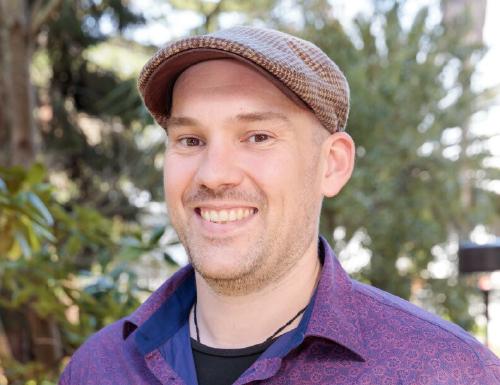
Nick Munn
Nick Munn is a Senior Lecturer in Philosophy at the University of Waikato. He works on Political Theory (with a focus on issues of enfranchisement) and Applied Ethics (with a focus on the status of virtual worlds and virtual actions). His publications include The Reality of Friendship within Immersive Virtual Worlds (2012), Friendship and Modern Life (2017), Against the Political Inclusion of the Incapable (2018), and Political Inclusion as a Means of Generating Justice for Children (2020).
- Dan Weijers, Nick Munn, Lorenzo Buscicchi: Happy Endings. Does size or shape matter most?
- Nick Munn, Lorenzo Buscicchi, Dan Weijers: Selling Happiness, One Chump at a Time.
- Nick Munn, Lorenzo Buscicchi, Dan Weijers: The Utility Monster is... other people!.
- Lorenzo Buscicchi, Dan Weijers, Nick Munn: Enlightened Self-Interest. Friends with benefits
- Lorenzo Buscicchi, Dan Weijers, Nick Munn: Psychological Hedonism. You Know You Want It
- Dan Weijers, Nick Munn, Lorenzo Buscicchi: Simulating Pleasure. If it feels good, does it matter whether it’s real?
- Dan Weijers, Nick Munn, Lorenzo Buscicchi: Is Pleasure Good? Don’t forget your safe word
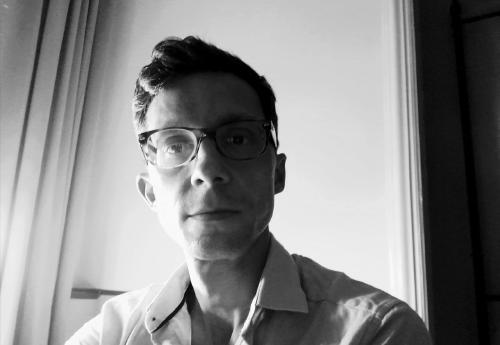
Luca M. Possati
Luca M. Possati is researcher at the University of Porto, Portugal. Educated as philosopher, he has been lecturer at the Institut Catholique de Paris and associate researcher of the Fonds Ricoeur and EHESS (Ecole des hautes études en sciences sociales). He is associate editor for Humanities & Social Sciences Communications.
His research focuses on the philosophy of technology and in particular on the relationship between neuropsychanalysis, affective neurosciences, and artificial intelligence. His approach combines philosophy, psychology, and digital ethnography. The study of the formation and development of algorithmic biases through psychoanalytic methods is at the core of his project.
- Andreas Matthias: Luca Possati on Transhumanism. Philosopher interviews
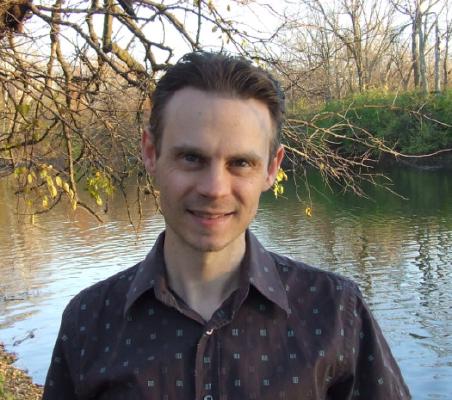
Brentyn J. Ramm
Brentyn J. Ramm is a Humboldt postdoctoral fellow in the Department of Psychology and Psychotherapy at Witten/Herdecke University in Germany. His research focuses on using first-person experimental methods to investigate conscious experience (experimental phenomenology). He completed his PhD in philosophy at the Australian National University in 2016. His honours in philosophy was at the University of Queensland. Before this he completed a PhD in cognitive psychology at the University of Queensland in 2006.

Robert Rodriguez
Robert Rodriguez is a life-long researcher and chronicler of hermit life and the history of hermits. He is author of The Book of Hermits: A History of Hermits from Antiquity to the Present (Hermitary Press, 2021), and also the founder and editor of the website Hermitary (hermitary.com).
- Andreas Matthias: Robert Rodriguez on Hermits. Philosopher interviews
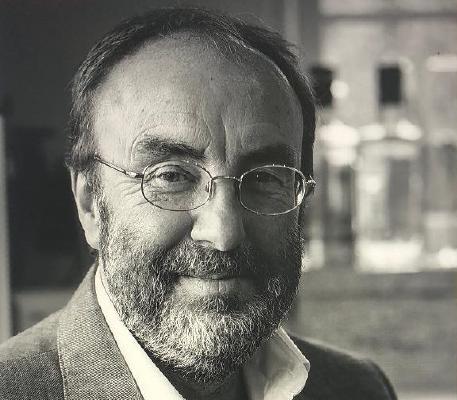
John Shand
Dr John Shand is a Visiting Fellow in Philosophy at the Open University. He studied philosophy at the University of Manchester and King’s College, University of Cambridge. He has taught at Cambridge, Manchester and the Open University. The author of numerous articles, reviews, and edited books, his own books include, Arguing Well (London: Routledge, 2000) and Philosophy and Philosophers: An Introduction to Western Philosophy, 2nd edition (London: Routledge, 2014).
Contact information:
- Dr John Shand, The Open University, Walton Hall, Milton Keynes, Buckinghamshire, MK7 6AA, United Kingdom.
- https://open.academia.edu/JohnShand
- http://fass.open.ac.uk/philosophy/people
- John Shand: The Empathy Paradox.
- John Shand: Meaning, Value, Death, and God.
- John Shand: Why We Should Read Descartes.
- John Shand: What Are We Responsible For? Intentions, consequences and character
- John Shand: Assisted Voluntary Euthanasia. The main arguments
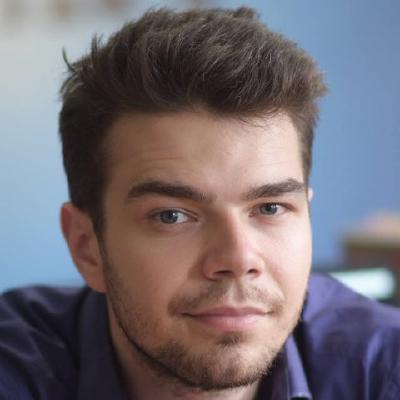
Andrei Simionescu-Panait
Andrei Simionescu-Panait is a philosophy Lecturer at the Polytechnic University in Bucharest, teaching philosophy of technology and history of philosophy courses. He also works as a philosophical counselor and critical thinking coach for psychologists, teachers, and company employees. His research combines phenomenology and Socratic dialogue techniques and is being directed at improving the learning experience for students with the help of instruments from both philosophical traditions.
- Andreas Matthias: Andrei Simionescu-Panait on Elegance. Philosopher interviews
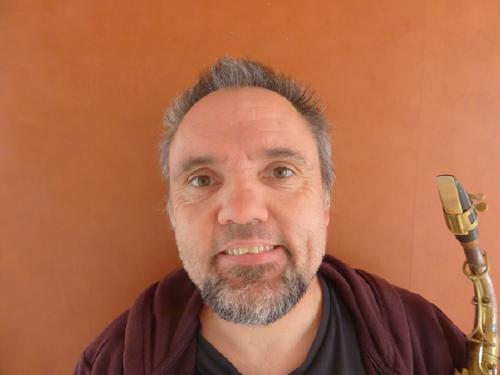
James Tartaglia
James Tartaglia is Professor of Metaphysical Philosophy at Keele University, UK. He is the author of Philosophy in a Meaningless Life (Bloomsbury 2016), Philosophy in a Technological World: GODS AND TITANS (Bloomsbury 2020), and (with Tracy Llanera) A Defence of Nihilism (Routledge 2021). He is also a jazz musician who makes jazz-philosophy fusion. For more information, including many sample writings and recordings, visit: https://jamestartaglia.com
- James Tartaglia: Are You A Nihilist? A Defence of Nihilism
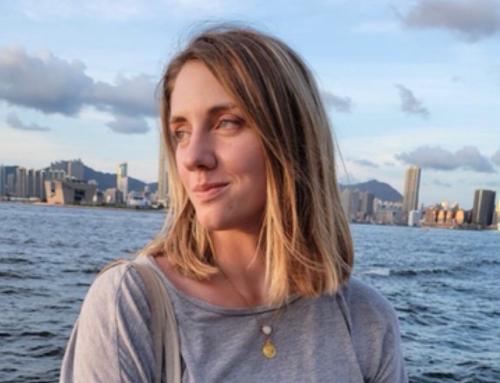
Ezechiel Thibaud
Ezechiel Thibaud is a visiting assistant lecturer in philosophy at Lingnan University in Hong Kong. She has specialized in moral and political philosophy. Her current research interests include liberal and republican freedom, theories of autonomy, the impact of technology on agency, corporation power and market ethics. She is also the co-host of the Accented Philosophy podcast. You can reach her at: ezechielthibaud (at) ln.hk.
- Ezechiel Thibaud: Nudges. The hidden influencers
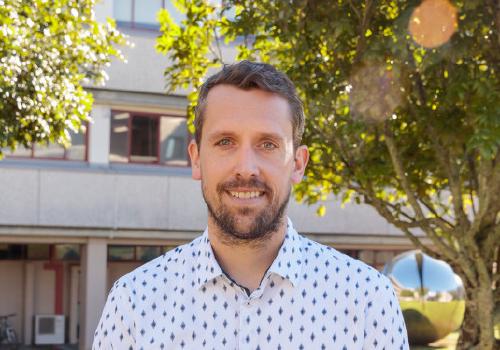
Dan Weijers
Dan Weijers is a Senior Lecturer in Philosophy at the University of Waikato. His main research interests are wellbeing, moral judgments, and the ethics of new and emerging technologies. Dan is a founding co-editor of the International Journal of Wellbeing, founding member of the Australasian Experimental Philosophy Research Group, international editorial board member of Rowman & Littlefield’s book series on “Behavioural Applied Ethics”, and editorial review board member for the International Journal of Technoethics. He has published in philosophy, psychology, economics, and public policy journals. More information and links to publications can be found at www.danweijers.com.
- Dan Weijers, Nick Munn, Lorenzo Buscicchi: Happy Endings. Does size or shape matter most?
- Nick Munn, Lorenzo Buscicchi, Dan Weijers: Selling Happiness, One Chump at a Time.
- Nick Munn, Lorenzo Buscicchi, Dan Weijers: The Utility Monster is... other people!.
- Lorenzo Buscicchi, Dan Weijers, Nick Munn: Enlightened Self-Interest. Friends with benefits
- Lorenzo Buscicchi, Dan Weijers, Nick Munn: Psychological Hedonism. You Know You Want It
- Dan Weijers, Nick Munn, Lorenzo Buscicchi: Simulating Pleasure. If it feels good, does it matter whether it’s real?
- Dan Weijers, Nick Munn, Lorenzo Buscicchi: Is Pleasure Good? Don’t forget your safe word

Lucy Weir
Dr Lucy Weir is an independent researcher, writer and facilitator whose emphasis is on philosophy as a practice, particularly in response to the ecological emergency, a phrase that encompasses both the urgent and critical nature of the Anthropocene and our collective inclination to deal with its impacts as though they are happening outside us. Her writing and facilitation focuses on addressing this fragmentary approach.
After a number of years volunteering in the global South, her postgraduate career began under the supervision of the late Emeritus Professor Barbara Harrell-Bond, founder of Oxford University’s Refugee Studies Programme. After moving to Ireland, the catalyst for Dr Weir’s further research, encompassing the wider philosophical and social issues of the ecological emergency, was the Corrib gas controversy.
Publications and contributions to publications include Fleeing Vesuvius (FEASTA, 2010), 1001 Ideas that changed the way we think (Quarto, 2013), 1001 quotations to inspire you before you die (Cassell, 2016), Love is Green: compassion as responsibility in the ecological emergency (Vernon, 2019) and Urgent Matters: philosophy as practice in the ecological emergency (Palgrave Macmillan, forthcoming). Information about current and upcoming courses and consultancy work can be found at www.knowyogaireland.com.
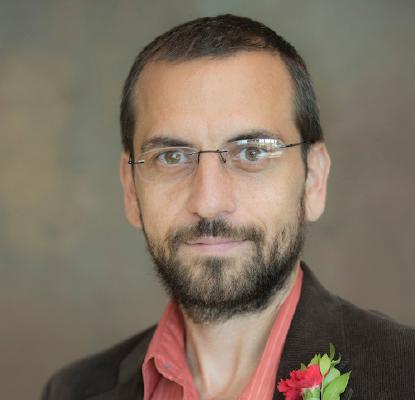
Roman V. Yampolskiy
Dr. Roman V. Yampolskiy is a Tenured Associate Professor in the department of Computer Science and Engineering at the Speed School of Engineering, University of Louisville. He is the founding and current director of the Cyber Security Lab and an author of many books including Artificial Superintelligence: a Futuristic Approach. During his tenure at UofL, Dr. Yampolskiy has been recognized as: Distinguished Teaching Professor, Professor of the Year, Faculty Favorite, Top 4 Faculty, Leader in Engineering Education, Top 10 of Online College Professor of the Year, and Outstanding Early Career in Education award winner among many other honors and distinctions. Yampolskiy is a Senior member of IEEE and AGI; Member of Kentucky Academy of Science. Dr. Yampolskiy’s main areas of interest are AI Safety and Cybersecurity. Dr. Yampolskiy is an author of over 200 publications including multiple journal articles and books. His research has been cited by 1000+ scientists and profiled in popular magazines both American and foreign, hundreds of websites, on radio and TV. Dr. Yampolskiy’s research has been featured 1000+ times in numerous media reports in 30+ languages. Dr. Yampolskiy has been an invited speaker at 100+ events including Swedish National Academy of Science, Supreme Court of Korea, Princeton University and many others.
- Andreas Matthias: Roman Yampolskiy on the dangers of AI. Philosopher interviews
- Roman V. Yampolskiy: The Uncontrollability of AI.